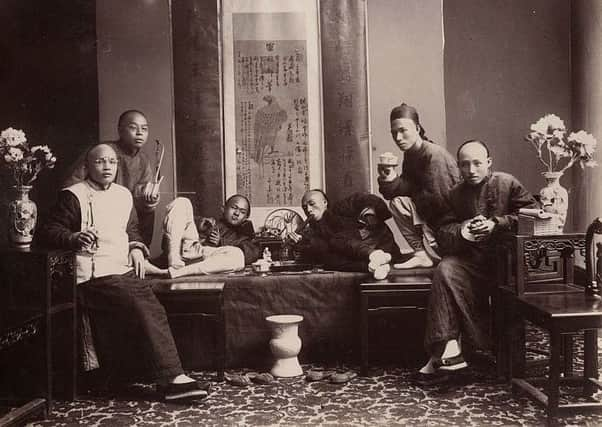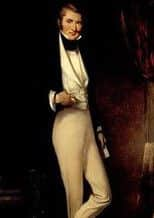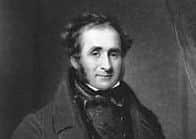The Scots who hooked China on opium
This article contains affiliate links. We may earn a small commission on items purchased through this article, but that does not affect our editorial judgement.


The antics of William Jardine and James Matheson are said to have had an “incalculable” effect on the health of China as they shipped in the best opium from India and perpetuated a desire for a drug consumed by an estimated 90 per cent of the country’s coastal population.
By the mid 1830s there were an estimated 3 million opium users in China. This rose to 15m by the late 1890s. By then, Jardine and Matheson had long ago left China but their importation of the drug had left a culture of consumption so ingrained that it had permeated all classes of Chinese society.
Advertisement
Hide AdFor Jardine and Matheson the riches were immense. In 1844, Matheson bought the Isle of Lewis and built Lews Castle, Stornoway, with his opium-fuelled wealth. Matheson was to rise to become a powerful figure within the Whig party.


Both were to take seats in the House of Commons - their pasts as wholesale drug dealers doing little to prejudice their reputations among the ruling classes.
William Jardine was born in Lochmaben, Dumfriesshire in 1784 and signed up as a surgeon with the East India Company after training in medicine at Edinburgh University
James Matheson was born in Lairg, Sutherland, in 1796. Also an Edinburgh graduate, he was considered to be the more charming and intellectual of the two. Matheson travelled to China after falling out with his uncle, a long established trader with links to Calcutta.


Jardine and Matheson met in Canton in 1818.
They were to go on to create their firm, Jardine, Matheson and Company, after the trade monopoly of the East India Company was relaxed by the UK in 1834.
By that time, however, they had thrived selling contraband opium through the British state-sponsored EIC.


Advertisement
Hide AdAs recorded in Tom Devine’s To The End’s of the Earth, Scotland’s Global Diaspora, 1750-2010, opium traffic was estimated to be around 4,500 cases - at 63.5kg per case - from 1800 to 1821.
By 1830, the drug accounted for one-seventh of all revenues of the EIC with traffic increasing to 40,000 cases by 1840.
Advertisement
Hide AdChina was in the grip of opium fever and the drug posed a serious social problem. It was estimated that 20 per cent of central government officials smoked the drug along with 80 per cent of the country’s clerk class.
Matheson’s nephew Donald became so concerned about the physical and social effect of the drug, he resigned from the firm.


The death of the son of Emperor Tao-kuang from an overdose in the late 1830s led to renewed efforts by China to stamp out trade and consumption of the drug.
High-ranking mandarin Lin Tse-hu was installed as Imperial Commissioner in 1838 and was vested with extraordinary powers to tackle opium use and supply.
He ordered the confiscation of more than 20,000 chests of opium already at Canton port with traders placed under house arrest.
Jardine Matheson - by now the owner of a fleet of opium clipper boats - handing over 7,000 chests
Advertisement
Hide AdIn all, around £2m-worth of opium was destroyed - approximately £150 million in today’s money.
Jardine was travelling to Britain when he heard of the Chinese action. He immediately hurried to London where he was granted an audience with Lord Henry Palmerston, then foreign secretary. Jardine lobbied hard for British action and provided knowledge and maps to help plan an armed response.
Advertisement
Hide AdBritain, prompted by the influential traders, went to war against China in 1839 with some agreement that it was the two Scots - Jardine and Matheson - who effectively triggered the war.
Military historian Saul David earlier said: “If I had to say who holds the chief responsibility for the wars then I’d have to say that the traders were to blame. And largest and most powerful amongst the traders was Jardine Matheson.”
The British quickly overwhelmed the Chinese and in 1841 the Chinese were forced to sign the Treaty of Nanking, which confirmed British possession of Hong Kong and opened up large swathes of China to trade.
Jardine and Matheson had effectively won. China had been forced to accept free trade and the opium continued to be sold.
The Scots retired back home - Jardine dying two years later and Matheson becoming one of Scotland’s largest landowners - while leaving a very troubling legacy far across the South China Sea.
DOWNLOAD THE SCOTSMAN APP ON ITUNES OR GOOGLE PLAY